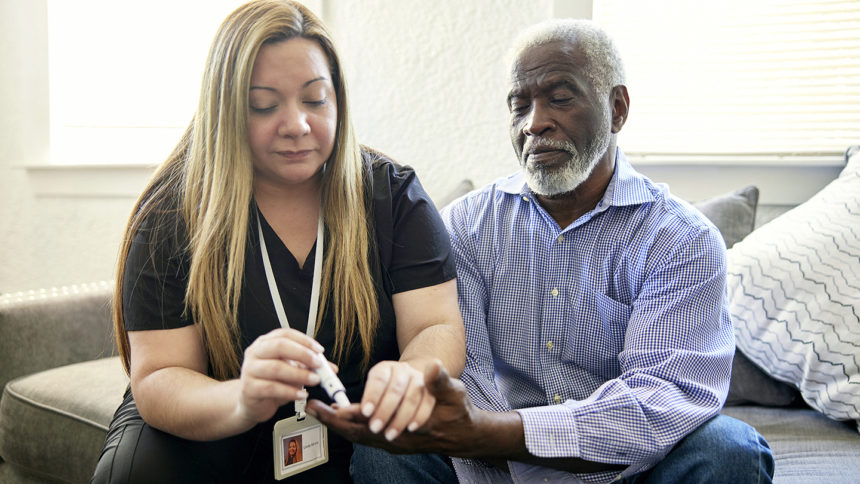
A high rate of hypoglycemia in long-term care facility residents with type 2 diabetes leaves room for better clinical management, researchers say.
Hypoglycemia, or too little sugar in the bloodstream, typically is a side effect of treatment with blood-sugar-lowering medication, according to the National Institutes of Health. Although the condition doesn’t always have symptoms, very high levels of blood sugar can cause a patient with diabetes to feel confused, drowsy or even lose consciousness. Older adults may be more vulnerable to adverse effects.
In the current study, drug orders for glucose-lowering medications were tracked for each LTC resident with type 2 diabetes between 2016 and 2020. Participants included 71,200 to 120,861 residents each year, making the study the largest of its kind to date in an LTC population, investigators said.
The researchers also calculated the annual percentage of patients ever prescribed glucose-lowering medication, overall and by medication category, who had experienced one or more hypoglycemic events.
35% rate of hypoglycemia
Each year, 35% of LTC residents with type 2 diabetes experienced level 1 hypoglycemia (glucose ≥54 to <70 mg/dL). This included between 10% to 12% of residents prescribed only oral glucose-lowering medications and 44% or more of residents prescribed injectable medications. Overall, about 25% experienced level 2 hypoglycemia (glucose concentration <54 mg/dL).
In addition, the researchers found that in each year of the study period, 68% to 73% were prescribed one or more glucose-lowering medications. These included oral medications for approximately 60% and injectable agents for about 70% of study participants.
Metformin topped the list as the most commonly prescribed oral agent, followed by sulfonylureas and dipeptidyl peptidase 4 inhibitors. The most commonly prescribed injectable drug was basal plus prandial insulin.
High-risk meds, insulin regimens
Residents who were prescribed high-risk medications and sliding scale insulin regimens were most likely to experience hypoglycemia, although the researchers couldn’t determine causality. Investigators also found that prescribing patterns were relatively consistent throughout the study period overall and by patient subgroup.
It has been widely reported that overtreatment of diabetes raises hypoglycemia risk, they noted. A recent study has found that to be true in long-stay nursing home residents of Veterans Administration facilities. And many prior studies have linked frequent use of intensive glycemic control to higher odds of hypoglycemia among community-dwelling older adults with type 2 diabetes in the United States and Europe.
The findings “suggest that opportunities exist for improving clinical management of diabetes among LTC residents with type 2 diabetes mellitus,” the authors concluded.
The study was published in JAMDA.
Related stories:
Overtreated diabetes raises hypoglycemia risk in nursing homes, investigators say
Most nursing home docs don’t prescribe SGLT2Is yet for diabetes: study
Frail heart failure patients improve with common diabetes drug, trial finds
Diabetes standards for 2023 include new treatment guidance, address equity



